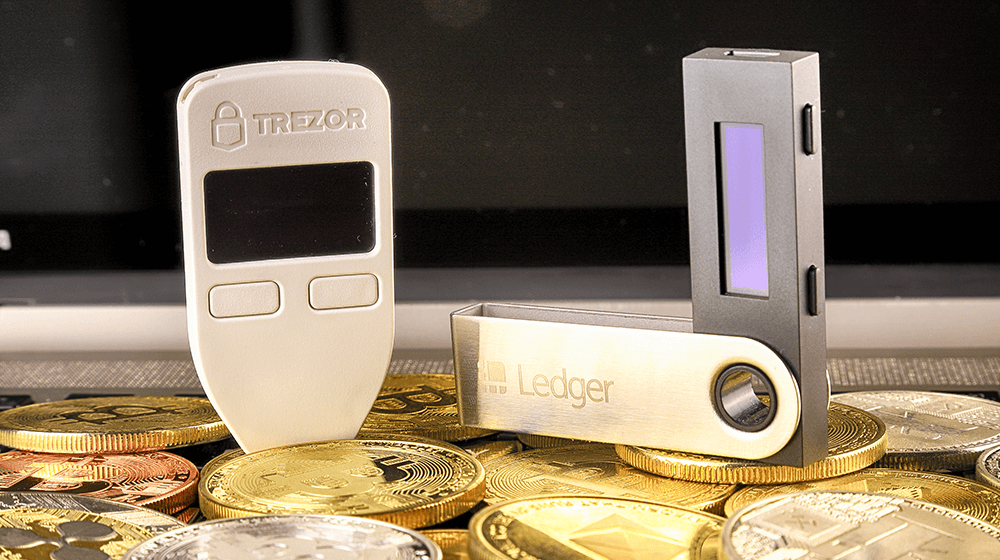Cryptocurrency Wallets: Safeguarding Your Digital Treasure Trove
Introduction
In the digital age, the concept of a wallet has evolved beyond the confines of leather and cash. Today, we carry our wealth in the form of cryptocurrencies, and safeguarding these digital assets is paramount. Cryptocurrency wallets are the modern equivalent of a safe, offering a secure and user-friendly means to store, manage, and transact with cryptocurrencies. In this article, we will explore the world of cryptocurrency wallets, the different types available, and best practices for keeping your digital fortune safe.
I. Understanding Cryptocurrency Wallets
At its core, a cryptocurrency wallet is a software program or hardware device that allows users to store, send, and receive cryptocurrencies. It operates on the principles of public and private keys. A public key is like your account number, visible to anyone and used to receive funds, while the private key is your secret password, allowing you to access and manage your funds. Wallets provide a user-friendly interface to interact with these keys and the blockchain.
II. Types of Cryptocurrency Wallets
Cryptocurrency wallets come in several varieties, each with its own set of features, benefits, and security considerations. The most common types are:

- Software Wallets:
- Online Wallets: These wallets run on cloud servers and are accessible from any device with an internet connection. They are convenient but potentially less secure due to the risk of hacking.
- Desktop Wallets: Installed on your computer, these wallets offer more security than online wallets, as they are less susceptible to online threats.
- Mobile Wallets: Designed for mobile devices, these wallets provide the convenience of on-the-go transactions but require caution to protect against device loss or theft.
- Hardware Wallets:
- These physical devices store your cryptocurrency offline, making them extremely secure. Popular examples include Ledger Nano S, Ledger Nano X, and Trezor.
- Paper Wallets:
- A paper wallet is a physical document containing your public and private keys. It’s a secure way to store cryptocurrency offline, but it requires careful handling to prevent physical damage or loss.
- Brain Wallets:
- Brain wallets are a form of software wallet where your private key is derived from a passphrase or set of words. While convenient, they are susceptible to brute-force attacks if the passphrase is weak.
III. Security Considerations
The security of your cryptocurrency holdings is of paramount importance. Here are key security considerations when using cryptocurrency wallets:
- Backup Your Wallet: Regularly back up your wallet’s private key or recovery seed. This backup is your lifeline in case your device is lost or damaged.
- Use Strong Passwords: If your wallet requires a password, ensure it is strong, unique, and not easily guessable.
- Enable Two-Factor Authentication (2FA): Whenever possible, enable 2FA to add an extra layer of security to your wallet.
- Beware of Phishing: Be vigilant about phishing scams and only download wallet software from official sources.
- Keep Your Software Updated: Wallet software updates often contain important security patches, so keep your wallet updated.
- Cold Storage: If you have significant cryptocurrency holdings, consider using hardware wallets or paper wallets for offline storage.
- Diversify Your Holdings: Don’t store all your cryptocurrencies in a single wallet. Diversify your holdings across different wallets and exchanges.
IV. Recovery and Lost Wallets
Losing access to your wallet, whether due to a forgotten password or misplaced recovery seed, can be a harrowing experience. To avoid this, always keep backups in secure locations. In case of loss, some wallets offer recovery mechanisms. However, many do not, emphasizing the importance of diligent backup practices.
V. The Future of Cryptocurrency Wallets
The world of cryptocurrency wallets is continuously evolving. In the future, we can expect to see advancements in the following areas:
- Usability: Wallets will become more user-friendly and accessible to individuals who may not be tech-savvy.
- Interoperability: The ability to manage multiple cryptocurrencies from a single wallet will likely become more seamless.
- Integration: Wallets may integrate additional features, such as decentralized applications (DApps) and decentralized finance (DeFi) platforms.
Conclusion
Cryptocurrency wallets are the essential tools for managing your digital assets, providing security and convenience in an increasingly digital financial landscape. As the crypto ecosystem continues to expand and mature, it’s crucial to remain informed about the latest wallet technologies and security practices. By adopting best practices and exercising caution, you can confidently navigate the exciting world of cryptocurrencies, knowing your digital treasure trove is safe and secure.